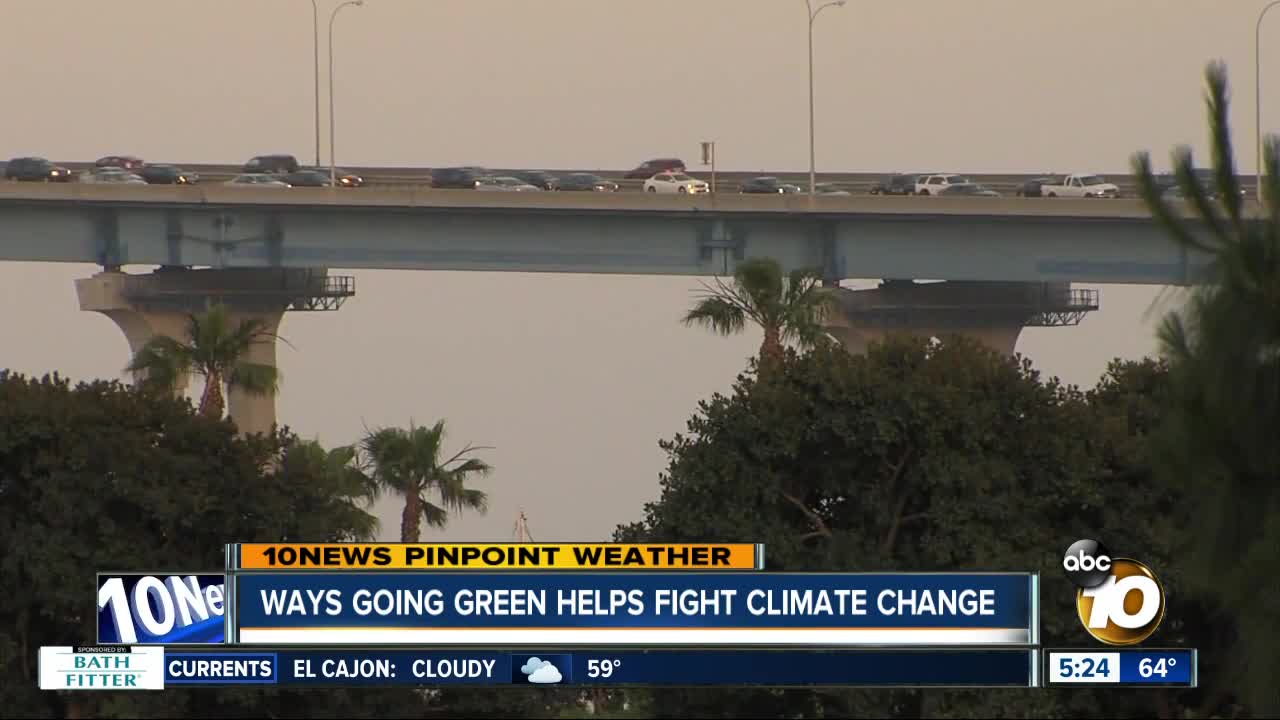SAN DIEGO (KGTV) -- Wrapping up our week of daily climate change discussions with a look at what you can do to make a difference. All week 10News has shown you different ways how climate change is increasing temperatures and extreme weather and the toll it's starting to take on San Diego.
According to Climate Central, climate change is harming health, stressing food and water supplies, elevating sea levels and damaging infrastructure and economies. Curbing these hazards may be the greatest challenge of our time, but mitigating solutions exist.
Data shows going green helps. Energy efficient appliances and products have kept 2.3 billion tons of carbon dioxide out of the air since 1987.
SPECIAL REPORT: Impact of ARkStorm scenario
Reduce water waste - it takes a lot of energy to pump, heat and treat water; try washing clothes with cold water and hang drying conserves energy. The Environmental Protection Agency estimates that if only 1-percent of American homes were retrofitted with water-efficient fixtures it would avoid 80-thousand tons of global warming pollution per year.
If you’re willing to take a bigger step consider transitioning to a plant-based diet, or at least eating more meatless meals. Approximately 10 percent of the U.S. energy use goes into growing, processing, packaging and shipping food, with livestock products among the most resource-intensive to produce and about 40 percent just ends up in landfills. Don’t waste food, consider growing your own.
Investing in renewable energy like solar or drive a hybrid or fully electric vehicle, ride a bike or car-share - you’ll save money at the pump too.
Higher impact steps include avoiding air travel and living car-free, try the train!
CLIMATE CHANGE:
-- Strengthening Atmospheric Rivers
-- A growing wildfire season
-- Sea-level rise and the impacts to San Diego
-- Living in a warming world
A thought echoed throughout the scientific community is asking the public to reach out to politicians. "They can talk to policy makers if this is something that is important to them then potentially we could bring about change to do something different with our climate," explains NASA scientist Nathan Kurtz.
Tom Corringham, a post-doctoral research economist at the Scripps Institution of Oceanography at UCSD agrees, "one thing we can do as individuals is reach out to out to our elected officials. There are things we can do on an individual level but ultimately this is a societal problem and would require solutions at the political level at the local, state, federal and international level."
He goes on to say, "one policy that would help dramatically would be an introduction of a carbon tax, the idea here is instead of taxing good things like property and income we could be tax bad things like pollution and carbon emissions and that would help bring the social cost of carbon in line with the private cost of carbon, which should decrease our reliance on fossil fuels."
It’s a daunting task, but there is hope as Alexander Gershunov, a research meteorologist at the Scripps Institution of Oceanography at UCSD, says "I’m an optimist and I think that climate change basically provides us more reason to do what needs to be done any way for society to evolve into the future."
The United Nations will tackle climate change next week on a global scale, but locally we can make a difference too.




